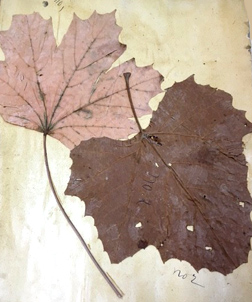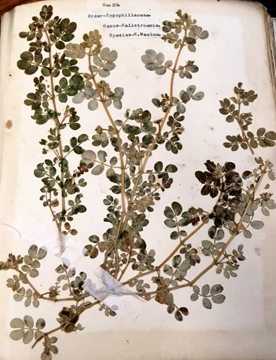I now promise to be less attentive to my military duties, which will enable me to pursue my other schemes more successfully. This is the first feature of my new ‘leaf.’ So wrote Captain Richard Vance in his diary on January 1, 1887. An Army career of more than 20 years had taken him to postings in the South, the western frontier, and now Texas, but Vance, who had never been particularly fond of the military, was yearning to retire.
By his own account, Vance resembled the stereotypical soldier: a devoted hunter and scrapper (he was once acquitted of murder), he chided himself over his chronic weakness for women (more about that here). But he was also widely read and self-taught, and his resolution for 1887 was to focus on the things that truly interested him and that he believed he could master. “For the present,” he wrote, “I shall confine myself to French, German, Botany & Ornithology.”
While stationed in Texas at Fort Clark, Vance had begun work on an herbarium, but now, garrisoned at Ringgold, he began collecting, analyzing and preserving samples of local flora. Though he made no claims to being an amateur, let alone professional botanist, Vance carefully researched, organized and classified his finds. The result was a thick volume of specimens “collected and arranged entirely for my own amusement,” which enabled him to “pass a very pleasant summer at this place.” While traveling, Vance also preserved leaves from the Antietam battlefield in Maryland and horse nettle from Warren County, Kentucky, where he was born.
Richard Vance’s herbaria are part of the Manuscripts & Folklife Archives collections of WKU’s Department of Library Special Collections. Click here for a collection finding aid. For more relating to botany and botanists, search TopSCHOLAR and KenCat.


